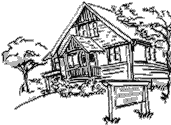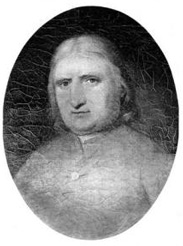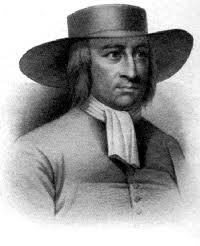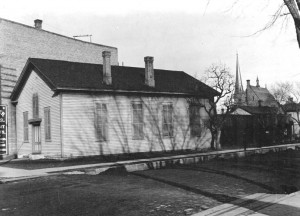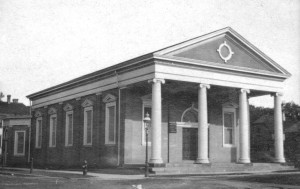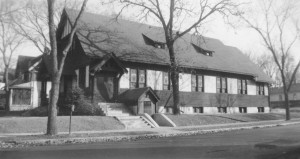Origins of Quakerism
In England in the late 1640s, a young man named George Fox became convinced that it was possible to have a direct experience of Christ without clergy. He traveled around England preaching, bringing together like-minded people, and out of this movement the Religious Society of Friends was born. A key early supporter was Margaret Fell, who is often considered a co-founder of Quakerism and who later married George Fox. By 1680 there were 60,000 Friends in England and Wales.
The term “Quaker” was first used by a magistrate before whom George Fox was brought on a charge of blasphemy. Fox wrote that the magistrate called his followers Quakers “because I bade them tremble at the word of the Lord.” Although the name began as a form of ridicule, it came to be accepted by Friends themselves, and now the terms “Friends” and “Quakers” are used interchangeably.
Some Quakers emigrated to America to escape persecution by the English authorities. In 1682, the affluent Quaker William Penn established Pennsylvania as a state to be run under Quaker principles, bringing many more Quakers to America. During the 19th century, British Quakers engaged in extensive missionary work overseas, spreading Quakerism around the world. Although Quakerism remains a relatively small sect with about 360,000 members worldwide, it is well-established in the United States, Britain, Kenya, Burundi, Guatamala, and Bolivia, with smaller numbers in other countries. Several branches of Quakerism have evolved, with some more evangelical than others and with varying degrees of emphasis on traditional Christian beliefs and practices.
History of Minneapolis Friends Meeting
Among the European-Americans who came to Minnesota in the 1850s were Quakers from New England, Ohio, Indiana, and North Carolina. In 1860, they built their first meetinghouse at the corner of 8th Street and Hennepin Avenue. The Minneapolis Friends Meeting was formally established in June 1863.
Friends were very involved with the early development and social welfare of Minneapolis. They helped to improve race relations, worked to provide opportunities for unmarried women with children, supported high-quality education, and were involved in the establishment of Abbott-Northwestern Hospital.
As the 1800s came to a close, Minneapolis Friends began to hire pastoral ministers who preached in meetings for worship and reached out to the community to bring in new members. In 1895, a new and larger meetinghouse was built at 14th Street and 1st Avenue (where the convention center is now located). During World War I, the Meeting supported the work of the newly-formed American Friends Service Committee, actively demonstrating that their opposition to the war came from humanitarian impulses rather than cowardice or lack of patriotism. During and after World War II, the Meeting was particularly supportive of AFSC relief work in Europe.
In 1950, Friends purchased the current meetinghouse on York Avenue. Membership grew dramatically when conscientious objectors and veterans of the world war who held Christian pacifist convictions brought their families to the Meeting. In the 1960s, Friends began holding two meetings for worship on Sundays, one unprogrammed and the other programmed. Vietnam War draft resisters were supported and draft counseling and sanctuary were provided.
Today, Minneapolis Friends support a wide variety of Quaker service and outreach organizations, including the American Friends Service Committee, Friends World Committee for Consultation, Friends for a Nonviolent World, and the Friends School of Minnesota.
For recent Minneapolis Friends Meeting history, see our State of Society reports.
For those interested in digging deeper into the past:
A History of Minneapolis Friends Meeting, 1863-1963
History of Friends in Minnesota, 1862-1912
